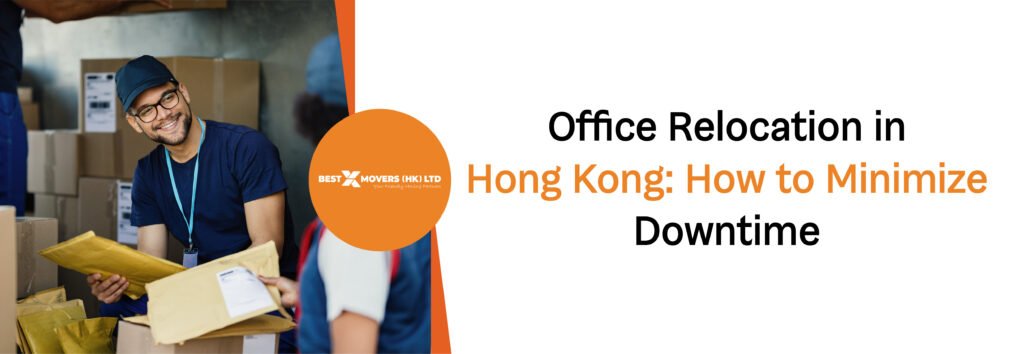Commercial Moving in Hong Kong: Common Mistakes Businesses Make
Moving your business in Hong Kong can feel overwhelming, especially when you’re trying to keep operations running smoothly. Many companies jump into commercial moving without realizing how different it is from residential moves. The stakes are higher, the logistics more complex, and the potential for costly mistakes much greater. Why Commercial Moving in Hong Kong is More Complex Than You Think Hong Kong’s unique urban landscape presents specific challenges for businesses planning to relocate. The city’s dense population, narrow streets, and strict building regulations create a moving environment unlike anywhere else in the world. Add to this the need to minimize business downtime, protect sensitive equipment, and coordinate with multiple stakeholders, and you’ve got a recipe for potential disaster if not handled properly. Most business owners make the mistake of treating commercial moving like an enlarged version of a home move. This couldn’t be further from the truth. Commercial relocations involve specialized equipment, professional-grade packing materials, and careful coordination of multiple moving phases to ensure your business can resume operations as quickly as possible. The Hidden Costs of Poor Planning When businesses fail to plan their commercial moving properly, the financial impact can be devastating. Beyond the obvious costs of hiring movers, companies often face unexpected expenses like extended downtime, emergency storage fees, damaged equipment replacement, and lost productivity during the transition period. A poorly executed move can cost businesses up to 30% more than their original budget. This doesn’t account for the indirect costs like lost customers, missed opportunities, and employee stress that can affect your company for months after the move. Mistake 1: Underestimating Timeline Requirements One of the biggest mistakes businesses make is not giving themselves enough time to plan and execute their move properly. Commercial moving in Hong Kong requires careful scheduling, especially when dealing with building management approvals, elevator reservations, and coordination with multiple service providers. Most successful commercial moves require at least 8-12 weeks of preparation time. This includes everything from initial planning and vendor selection to final setup and testing at the new location. Companies that try to rush this process often find themselves scrambling at the last minute, leading to higher costs and potential delays. Key Timeline Considerations: Mistake 2: Choosing the Wrong Moving Partner Not all moving companies are equipped to handle commercial relocations. Many businesses make the mistake of choosing a mover based solely on price, only to discover later that the company lacks the expertise, equipment, or insurance coverage needed for a complex business move. When evaluating commercial moving services, look for companies that specialize in business relocations and have a proven track record in Hong Kong. Best Movers HK offers specialized commercial moving services designed specifically for Hong Kong businesses, with experience handling everything from small office moves to large corporate relocations. What to Look for in a Commercial Moving Company: Mistake 3: Poor Inventory Management Many businesses fail to properly catalog their assets before moving, leading to lost items, insurance disputes, and confusion at the new location. A comprehensive inventory is essential for tracking valuable equipment, ensuring nothing gets left behind, and organizing the unpacking process efficiently. Create a detailed inventory that includes everything from office furniture and computers to important documents and personal items belonging to employees. Use a numbering system that corresponds to your floor plan at the new location to make unpacking more organized. Inventory Best Practices: Mistake 4: Overlooking Legal and Regulatory Requirements Hong Kong has specific regulations governing commercial moves, especially in high-rise buildings and busy commercial districts. Many businesses fail to obtain proper permits, coordinate with building management, or comply with local moving regulations, leading to delays and potential fines. Building management typically requires advance notice for commercial moves, and many buildings have restrictions on moving hours, elevator usage, and loading dock access. Some areas also require street permits for parking moving trucks or temporary loading zones. Common Regulatory Requirements: Mistake 5: Inadequate Communication with Stakeholders Poor communication is one of the leading causes of moving-related problems. Businesses often fail to keep employees, customers, suppliers, and service providers informed about the move timeline and how it might affect operations. Start communicating about the move early and frequently. Create a communication plan that outlines what information needs to be shared, when it should be shared, and who is responsible for each communication task. Key Stakeholder Communications: Mistake 6: Neglecting Insurance and Risk Management Commercial moves involve valuable equipment, sensitive documents, and potential business interruption costs that far exceed what typical moving insurance covers. Many businesses discover too late that their standard business insurance doesn’t cover items in transit or that the mover’s basic coverage is insufficient. Review your insurance needs well before the move and consider additional coverage for high-value items, business interruption, and potential delays. Work with your insurance provider to understand what’s covered and what additional protection you might need. Insurance Considerations: Mistake 7: Rushing the Post-Move Setup Many businesses focus so much on the physical move that they don’t adequately plan for getting operations running at the new location. This includes everything from IT setup and phone systems to employee workstation organization and supplier notifications. Create a detailed post-move checklist that prioritizes critical systems and services. Test everything before employees return to work, and have backup plans ready if something doesn’t work as expected. Post-Move Priority Checklist: How to Choose the Right Commercial Moving Service Selecting the right moving partner can make the difference between a smooth transition and a stressful disaster. Look for movers who understand the unique challenges of commercial relocations in Hong Kong and have the resources to handle your specific needs. A professional commercial moving company should offer comprehensive services including pre-move planning, detailed project timelines, specialized packing services, and post-move support. They should also have experience with your type of business and understand any industry-specific requirements you might have. Questions to Ask Potential Movers: Creating Your Commercial Moving Checklist A comprehensive checklist helps ensure nothing gets overlooked during your commercial move. Start with



